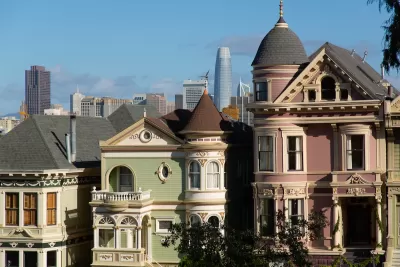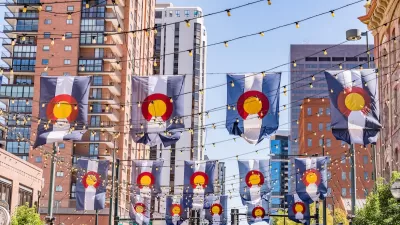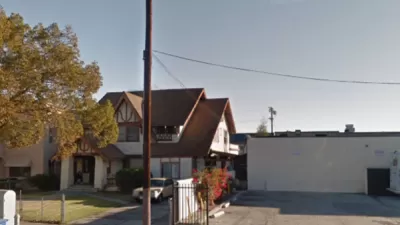For decades, many U,S, neighborhoods successfully resisted change at the expense of a few neighborhoods sacrificed to mass development. Is there a better way?

In a piece for Strong Towns, Charles Marohn calls for a new “housing bargain,” arguing that the pattern of housing development in American cities that has been accepted for decades is no longer working.
For Marohn, the “unspoken grand bargain” of U.S. development has been that “No neighborhood needs to change; they can all stay in their current form, but in exchange, one or two neighborhoods will experience radical transformation.”
This sacrificing of some neighborhoods for the sake of others perpetuates inequities and harms all types of neighborhoods. “The neighborhoods that avoid change aren’t static; they’re slowly declining. Costs keep increasing. The tax base does not. The lack of incremental adaptation means that they’re becoming less financially productive, more expensive to maintain and increasingly fragile.”
On the other side, neighborhoods that do experience transformation also see rising costs, displacement, and predatory practices.
Marohn proposes a new bargain: “Every neighborhood needs to experience a bit of change; they all need to evolve and mature, but no neighborhood should experience radical change.” By recognizing that change is inevitable, this approach allows for incremental, organic growth. According to Marohn, “For places to make this change, a conversation needs to happen at the community level. Residents need to understand that a neighborhood evolving over time is not something to fear but something to embrace. It’s the only way to ensure that our cities remain vibrant, adaptable and accessible to everyone.”
FULL STORY: America’s “Grand Housing Bargain” Is Broken. It’s Time for a New One.

Study: Maui’s Plan to Convert Vacation Rentals to Long-Term Housing Could Cause Nearly $1 Billion Economic Loss
The plan would reduce visitor accommodation by 25,% resulting in 1,900 jobs lost.

North Texas Transit Leaders Tout Benefits of TOD for Growing Region
At a summit focused on transit-oriented development, policymakers discussed how North Texas’ expanded light rail system can serve as a tool for economic growth.

Using Old Oil and Gas Wells for Green Energy Storage
Penn State researchers have found that repurposing abandoned oil and gas wells for geothermal-assisted compressed-air energy storage can boost efficiency, reduce environmental risks, and support clean energy and job transitions.

Private Donations Propel Early Restoration of Palisades Playground
Los Angeles has secured over $1.3 million in private funding to restore the Pacific Palisades playground months ahead of schedule, creating a modern, accessible space that supports community healing after recent wildfires.

From Blight to Benefit: Early Results From California’s Equitable Cleanup Program
The Equitable Community Revitalization Grant (ECRG) program is reshaping brownfield redevelopment by prioritizing projects in low-income and environmental justice communities, emphasizing equity, transparency, and community benefits.

Planting Relief: Tackling Las Vegas Heat One Tree at a Time
Nevada Plants, a Las Vegas-based nonprofit, is combating the city’s extreme urban heat by giving away trees to residents in underserved neighborhoods, promoting shade, sustainability, and community health.
Urban Design for Planners 1: Software Tools
This six-course series explores essential urban design concepts using open source software and equips planners with the tools they need to participate fully in the urban design process.
Planning for Universal Design
Learn the tools for implementing Universal Design in planning regulations.
Ascent Environmental
Borough of Carlisle
Institute for Housing and Urban Development Studies (IHS)
City of Grandview
Harvard GSD Executive Education
Toledo-Lucas County Plan Commissions
Salt Lake City
NYU Wagner Graduate School of Public Service





























